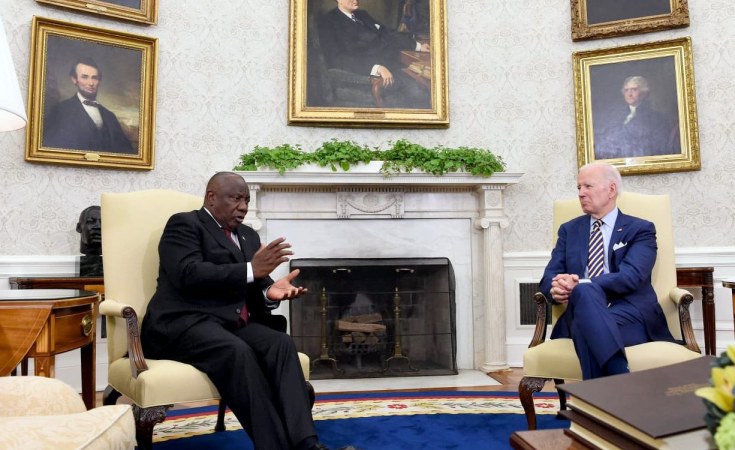The upcoming White House visit presents an opportunity to deepen monitoring and evaluation of bilateral collaboration on defense, intelligence, and law enforcement matters.
Tomorrow, President Biden hosts South African President Cyril Ramaphosa at the White House. The leaders will be working to deepen collaboration on a number of bilateral issues, including climate, energy, health, infrastructure, investment, and trade. International criminal networks and transnational security threats are crucial to this list. According to the Department of State, the United States government is already working to broaden and deepen collaboration on law enforcement and the judiciary with its counterparts in the South African government. Here, an emphasis has been placed on transnational crime as it affects the United States. A good example is the ongoing investigation into South Africa-based ISIS organizers and financial facilitators. Unfortunately, the high-profile Black Axe Cases serve as a cautionary tale. Last year, the South African Police Service arrested the leaders of this alleged transnational organized criminal network for engaging in internet scams and money laundering that harmed American citizens and financial systems. Another alleged leader was arrested and released on an approximately $60 bail, only to be re-arrested this year. Remarkably, the biometric data that reportedly linked him to the crimes was soon allegedly deleted from a national law enforcement database in South Africa.
In joint international operations, U.S. law enforcement should be able to count on reasonably comparable standards in the rule of law from the South African government. This incident raises questions about the future of collaboration and cooperation on law enforcement and the judiciary between the two countries. President Biden should press President Ramaphosa on this all-important issue.
Similarly, the U.S. government seeks to broaden and deepen collaboration on defense and intelligence, particularly in countering transnational security threats. Some examples include piracy, poaching, trafficking, and terrorism. The U.S. government will face severe limitations on what is possible on these accounts. According to the Chairperson of the South African Parliament's Portfolio Committee on Defence and Military Veterans, Cyril Xaba, the South African military-industrial complex is in a rapid state of decline that could take years to reverse. The Department of Defence is not even able to meet the current defense commitments. These gaps raise important questions regarding the potential for cooperation on defense and intelligence between South Africa and the United States. This should matter to American policymakers given the ongoing conflict in neighboring Mozambique, a country with which South Africa shares a virtually open border.
The U.S. government must continue to monitor and evaluate the diminishing capacities of the South African government in these important areas. This visit presents a real opportunity for regular external monitoring and evaluation to be established at the highest levels in the strategic partnership between the two countries. It is an opportunity the Biden Administration cannot afford to miss.
Michael Walsh was the chair of the Asia-Pacific Security Affairs Subcommittee on the Biden Defense Working Group during the 2020 U.S. Presidential Campaign. Phiwokuhle Mnyandu is a lecturer in the Departments of African Studies and World Languages at Howard University.


